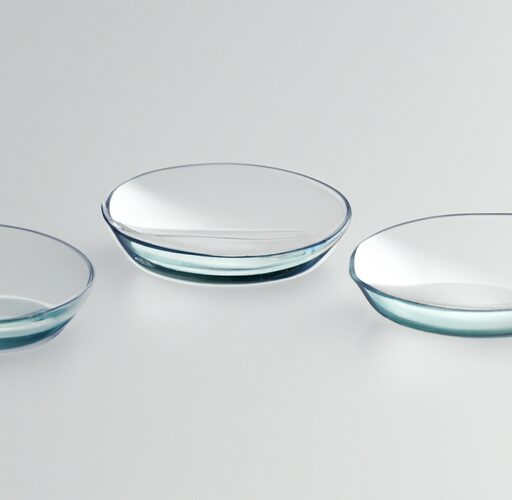Contact lenses are a popular choice for people who want to avoid glasses or improve their appearance. However, have you ever stopped to think about how this daily convenience might affect our environment? In this article, we will discuss the impact that contact lenses have on the environment and what we can do to reduce this impact.
The Problem with Disposable Lenses
One of the greatest environmental concerns with contact lenses is their disposal. Soft contact lenses are made of hydrogel, which takes hundreds of years to decompose. Even worse, many people flush contact lenses down the toilet, where they can end up in waterways and oceans. Once there, they can harm marine life, cause blockages in water treatment systems, and contribute to plastic pollution.
A study by Arizona State University estimated that Americans discard an astonishing 1.8 billion contact lenses, along with their blister packs, foil lids, and plastic applicators, each year. That’s equivalent to 50,000 pounds of waste generated by contact lenses!
How We Can Do Better
Fortunately, there are several ways we can reduce the impact of contact lenses on the environment. One of the easiest is to switch from disposable to reusable lenses. While they require more care, reusable lenses can last for up to a year and significantly reduce waste.
Another option is to recycle contact lenses and their packaging. Several companies, including Bausch + Lomb and TerraCycle, have created collection programs that accept contact lenses and recycle them. Don’t forget about the plastic container that holds your contact lenses! These containers are also recyclable and can be cleaned and reused.
Lastly, if you absolutely must use disposable lenses, never flush them down the toilet. Instead, put them in the trash, where they can be sent to a landfill or waste-to-energy facility.
Final Thoughts
As we’ve seen, contact lenses can have a significant effect on the environment. However, with a few simple adjustments to our habits, we can significantly reduce this impact. Whether you choose reusable lenses, recycling programs, or proper disposal, you can be part of the solution. So the next time you reach for your contact lenses, remember the impact they have and what you can do to make a difference.
Read More:
The Best Contact Lens Brands for Special Occasions
The Importance of Choosing the Right Contact Lens Solution
Contact Lenses for Remote Medical Consultations: A New Solution?

